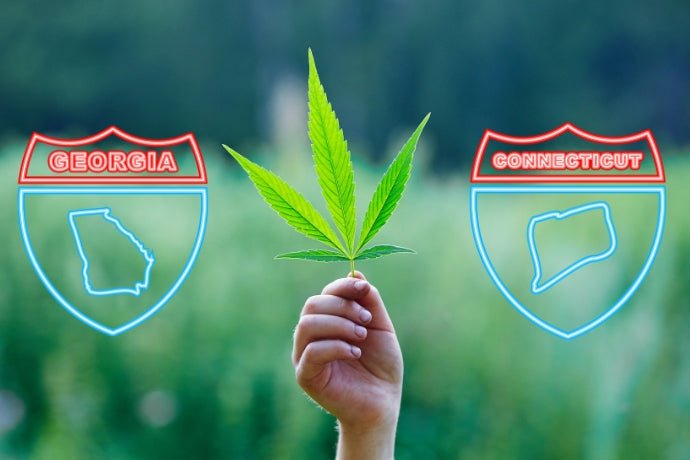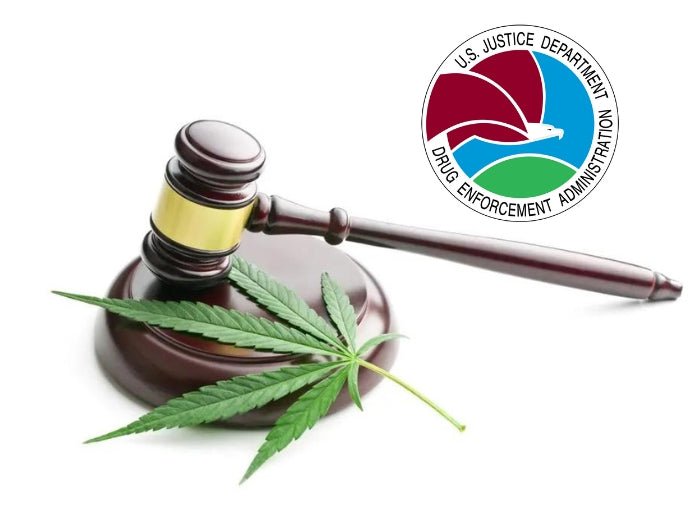Legislators hope to renew the massive spending measure later this year, seeking to define hemp more definitively and provide more precise guidance for farmers on various agricultural issues.

With yesterday's announcement by the U.S. Drug Enforcement Agency (DEA) to reschedule cannabis from Schedule 1 to Schedule 3 as part of the Controlled Substances Act, leaders in Washington are ratcheting up their commitment to continue removing barriers concerning the legality of marijuana. However, many other lawmakers are also working diligently to address several pressing and polarizing aspects surrounding cannabis' sister plant, hemp.
In 2018, Congress passed a new, more progressive Farm Bill, the massive 5-year, roughly trillion-dollar agricultural spending package. Along with renewing programs like SNAP (Food Stamps) and myriad other farm-related initiatives, the legislation also legalized hemp and its downstream derivative products and uses for the first time in nearly a century.
Since that time, hemp and the thousands of small to medium-sized business owners comprising the young and innovative industry have experienced a roller coaster ride of incredible highs and equally crushing lows. The COVID-19 pandemic lockdowns saw a substantial surge in CBD sales, prompting massive investment in the market sector.
However, after the lockdowns ended, the CBD market crashed, leaving farmers, end-product manufacturers, and retail owners with a ton of products and nowhere to sell them. Like many similar industry stories of boom and then bust enterprising entrepreneurs discovered innovative solutions to the glut of CBD raw materials by creating products containing intoxicating hemp derivatives (IHDs), like the well-documented and enigmatic delta-8 THC.
As a result, IHD products began showing up in significant quantities nationwide in health food stores, smoke and tobacco shops, convenience stores, and many other retail outlets. That explosion led to a handful of cases in which consumers, some underage, became ill after consuming IHD edible products.
In response, several states began passing laws restricting or outright banning products containing delta-8 THC and other IHDs. While hard-working, law-abiding citizens run most hemp businesses, and a majority of IHD products are entirely safe for consumption, the notion that hemp-based intoxicants are dangerous and must be eradicated took hold, particularly in states with legal cannabis (medical or recreational) and a strong "Big Cannabis" corporate presence.
To address the concerns of health officials, law enforcement, hemp business owners, and consumers, the members of Congress responsible for the 2018 Farm Bill promised to address items like IHDs when the spending measure came up for renewal. However, due to bipartisan bickering and a generally accepted level of incompetence by both legislative chambers, Congress postponed the bill's renewal from 2023 to 2024.
According to numerous local and national media outlets, leaders from both parties on the U.S. Senate Agricultural Committee unveiled their respective legislative frameworks for the bill's upcoming renewal on Wednesday.
One of the foundational pillars of the Democratic leadership's proposed framework is clearly defining industrial hemp in this iteration of the measure. On page 74 of the 94-page section about agricultural commodities, Senate Democrats seek to define industrial hemp and lower "regulatory barriers for farmers who are growing industrial hemp for grain and fiber."
Following the release of the proposed framework modifications, Jonathan Miller, general counsel for the U.S. Hemp Roundtable, said, "We're very pleased to see that there's a reduced regulatory burden on hemp grain and fiber farmers."
"We're very pleased to see that there's a reduced regulatory burden on hemp grain and fiber farmers."
- Jonathan Miller, General Counsel for the U.S. Hemp Roundtable
The authors also hope to eliminate a ban that prohibits individuals convicted of a felony from cultivating hemp or participating in the U.S. Domestic Hemp Production Program. That ban was part of a compromise that enabled hemp legalization in the 2018 Farm Bill.
Miller and his cohorts at the U.S. Hemp Roundtable were equally "thrilled" to see lawmakers actively working to remove the felon ban. "We've been fighting to get it repealed ever since then," Miller said regarding the 2018 concession. "We think farmers who have paid their time should be able to grow a completely legal crop. We also don't want other farmers hassled with having to get background checks when they haven't done anything wrong, either," Miller stated.
"We think farmers who have paid their time should be able to grow a completely legal crop. We also don't want other farmers hassled with having to get background checks when they haven't done anything wrong, either."
- Jonathan Miller, General Counsel for the U.S. Hemp Roundtable
Despite the positive momentum created by the Democratic plan, the Republican framework model did not mention hemp. Equally disappointing for hemp advocates and stakeholders was the glaring omission of IHDs, like delta-8 THC, from both parties' respective frameworks.
However, Miller is putting a more positive spin on the lack of IHD inclusion in the Democratic and Republican plans. In an interview with MJBizDaily, Miller said any effort to "treat (hemp-based cannabinoids) like marijuana … will also wreak havoc on the nonintoxicating CBD industry because most full-spectrum CBD products have some THC in them. We've been afraid that the Farm Bill might include that language and have been lobbying very aggressively not to see it. So far, it wasn't mentioned in either bill, and we hope it doesn't find the light of day."
"We've been afraid that the Farm Bill might include that language and have been lobbying very aggressively not to see it. So far, it wasn't mentioned in either bill, and we hope it doesn't find the light of day."
- Jonathan Miller, General Counsel for the U.S. Hemp Roundtable
Hopefully, Miller's "see no evil, hear no evil" approach will translate into less anti-hemp and anti-IHD legislation and enforcement at the state level. However, the issue of what to do with hemp-derived intoxicating products will eventually have to be addressed at the federal level.
Without clear and definitive legal clarification on IHDs and CBD, the hundreds of thousands of people employed by the rapidly growing hemp industry and its millions of dedicated customers will remain in an uneasy limbo state with no clear path forward, which is a very precarious position for a market that generated over $28 billion in revenue last year.








































